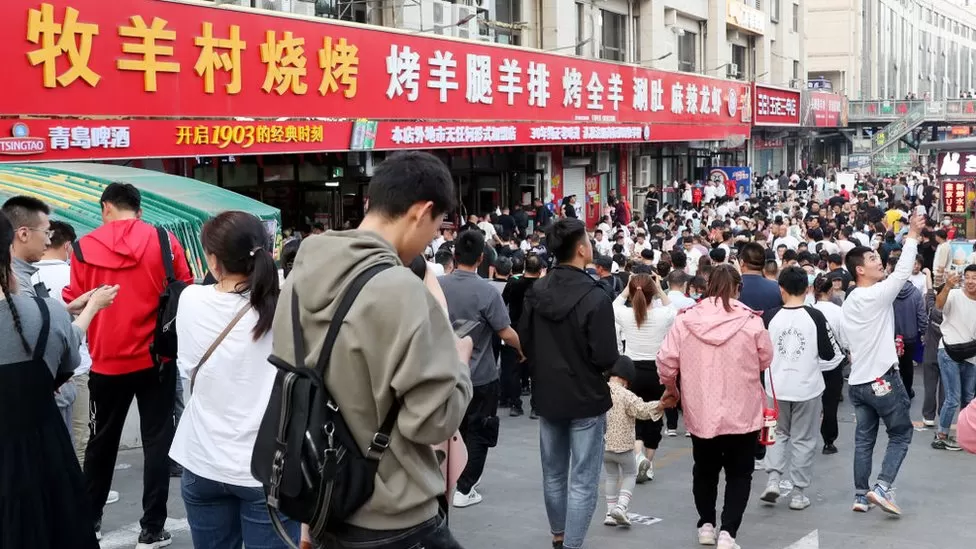Zibo, a previously unknown city in China’s Shandong province, has become a tourist hotspot after Covid restrictions were lifted in January. Millions of domestic visitors have flocked to the city, drawn in by cheap prices and a chance to unwind after the pandemic. Barbecues, which cost as little as 2 yuan ($0.30) per skewer, are a particular draw for tourists, with more than 1,270 barbecue joints in the city. Social media influencers and the government have helped to publicise Zibo, but there are concerns about its capacity to handle the sudden influx of visitors. The city’s population doubled in March and on 29 April, Zibo Railway Station saw a record 87,000 train trips to and from the station. Local authorities have built a barbecue zone that can accommodate 10,000 people and extended museum opening hours. They have also dispatched volunteers to offer advice to tourists and threatened to punish hotels that raise prices by more than 50%. However, the city’s ability to cope with the influx of visitors has been questioned.
As the article highlights, Zibo has become a tourist hotspot for domestic travelers in China, attracted by the city’s famous outdoor barbecue scene and cheap prices. The sudden influx of visitors has brought both benefits and challenges to the city and its residents.
On the one hand, the surge in tourism has created new business opportunities and boosted the local economy. Restaurants, hotels, and other tourist-oriented businesses have seen a significant increase in demand, and the city has responded by building new infrastructure and offering additional services to accommodate visitors.
On the other hand, the sudden increase in tourism has also created challenges for the city and its residents. Infrastructure such as transportation and accommodations have been stretched thin, with reports of high-speed train tickets and hotel rooms being sold out far in advance. The high demand has also led to concerns about overpricing and profiteering, leading the government to threaten to punish hotels that raise prices by more than 50%.
Meanwhile, local residents have expressed mixed feelings about the influx of visitors. Some have welcomed the business opportunities and exposure that come with increased tourism, while others have expressed frustration with the crowds and disruptions caused by the sudden surge in visitors.
Despite the challenges, Zibo’s newfound popularity highlights the potential for small and medium-sized cities in China to attract domestic tourists and build thriving local economies. As China’s tourism industry continues to rebound from the pandemic, cities like Zibo may be able to capitalize on their unique attractions and cultural offerings to attract more visitors and create new opportunities for growth and development.


